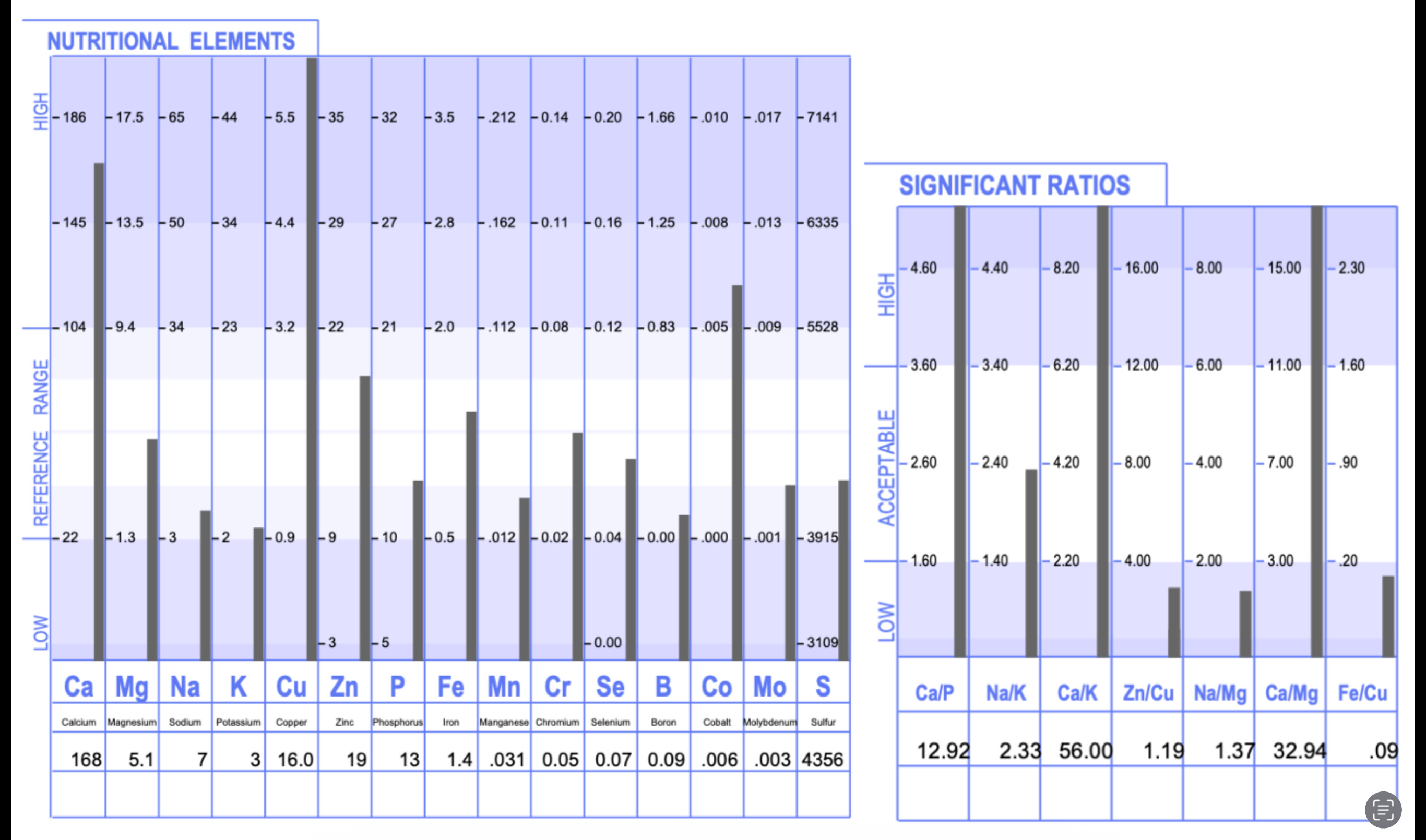Struggling with Fatigue, Gut Issues, or Burn Out? This Simple Test Uncovers the Hidden Cause...
Ever Feel Like Your Health is a Puzzle with a Missing Piece - One You Just Can't Seem to Find? 
That’s where Hair Tissue Mineral Analysis (HTMA) steps in, offering the insights you need to see the full picture of your health—and determine actionable steps forward.
If you’re new to HTMA, let’s explore what it is, how it works, and why it’s a powerful tool for personalized health transformation.

What is HTMA?
HTMA is a non-invasive, non-diagnostic, and inexpensive test that analyzes the mineral content in your hair. Why hair? Hair acts like a mini storage locker for minerals, locking in valuable information about your body’s long-term mineral levels and exposures to toxic metals.
Unlike blood tests, which provide a snapshot of what’s happening in the moment, HTMA reflects trends and patterns over time…the last 3 months, specifically. This makes it an excellent tool for identifying deeper imbalances that might not show up on traditional lab work.

So What Can HTMA Reveal?
The information gleaned from an HTMA test goes far beyond basic mineral levels. It provides a window into:

How well your key minerals—like calcium, magnesium, sodium, and potassium—are working together. Imbalances in these ratios can reveal patterns of stress, energy production, blood sugar balance, and more.

May detect the presence of harmful metals like mercury, lead, and arsenic, which can disrupt normal cellular function and cause long-term health issues. (Though sometimes it takes displacing these metals with minerals first to know what’s actually in there…)

Helps determine whether your body is in a “fast” or “slow” metabolic state, offering clues about your energy levels, digestion, and overall resilience, and how fast or slow you’re using your minerals up.

Chronic stress depletes minerals like potassium, magnesium, and sodium. HTMA can show how stress is affecting your body and what steps you can take to replenish.

Why is Proper Interpretation So Critical?
While the test itself is straightforward—just a small hair sample sent to a lab—the real magic happens in its interpretation.
HTMA isn’t just about high or low mineral levels—it’s about patterns. A mineral that looks ‘high’ may actually be unusable, while a ‘low’ level might point to deeper imbalances. This is why proper interpretation is everything.
For example, low sodium might point to adrenal stress, but if magnesium is also high, it could indicate a very different underlying issue. And to further complicate things, just because a mineral is high, doesn’t mean that you have too much of it, but rather, it may be unabsorbed and unavailable to your body. This test requires someone that has been trained to understand the complexity that is the HTMA.
Take my first HTMA test, for example…

I happened to be in a very slow metabolic oxidation pattern, with my Ca/P ratio so high. Given this high Ca/P ratio, I was also in a “calcium shell”, where my high level of calcium was unavailable to my cells – and to me. Calcium is critical as a calming mineral. The result of it being high here? I felt anxious, edgy, and wanting to hide all the time.
But to an untrained eye, you might think that I actually had plenty of usable calcium, and so much that it was just pouring back out of me!
The solution wasn’t what I expected… and it changed everything.
My next steps were all about decalcification, or dissolving that calcium back into my tissues so that I could actually use it where it was so critically needed, and teaching myself to feel safe in my body. And it worked.
And this is why working with a practitioner trained specifically in HTMA interpretation is essential. They can decode the intricate patterns in your results and provide targeted recommendations tailored to your unique body. Without this expertise, it’s easy to miss key insights—or worse, misinterpret the data entirely.

Clinical Applications of HTMA
The actionable insights from HTMA make it a valuable tool for addressing a wide range of health concerns, including:





Why HTMA is the Missing Piece in Complex Health Cases
If you’ve tried every diet, supplement, and protocol but still don’t feel your best, HTMA could reveal what’s really holding you back. It’s not just about what minerals are low and simply plugging them back in—it’s about understanding the stress, trauma, nutrient deficiencies, and other hidden factors keeping you in the same pattern. When you work with your body instead of against it, healing becomes possible.

Are YOU Ready to Learn More? 🤔
If you are not sure about what is right for you, let's hope on a complimentary discovery call to help you know what level of investigation your body needs.
✅You'll know what specialized testing would benefit your specific needs
✅Based on your symptoms and level of commitment, we can - together - clarify the next steps to move you toward your vision of what you want your health to be.
Related Posts

Dr. Deborah Bowers
822 B E Liberty St
York, SC 29745
(803)628-7934
© 2025 Dr. Deborah Bowers. All Rights Reserved.
Site Conceived By HealthProWebsite.com

